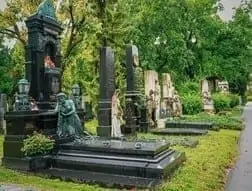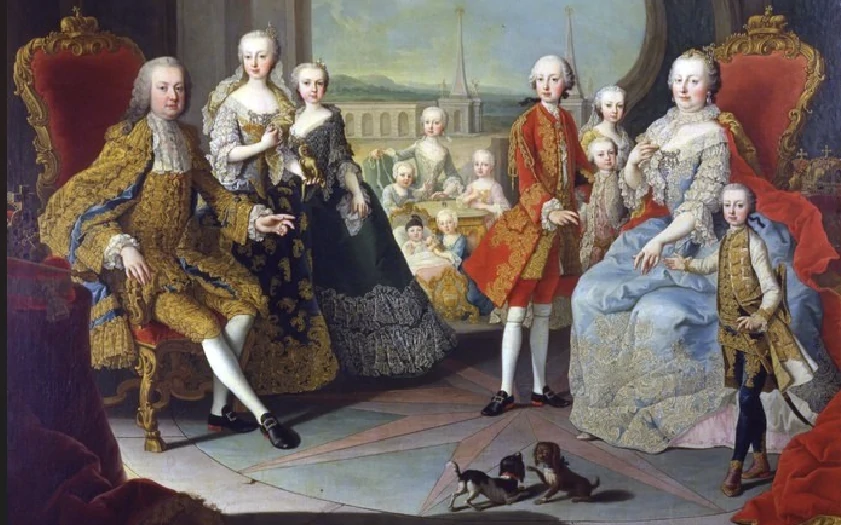Where is the Vienna Central Cemetery located and since when has it existed? What makes it a tourist attraction? Which grave is visited most often? Vienna was a rapidly growing city at the end of the 19th century . People from all parts of the Habsburg Monarchy flocked to the imperial capital of Vienna to find work. The influx was considerable. At that time, Vienna had more inhabitants than it has today (about 2 million) and it was expected to increase to 4 million in the long run. There were five municipal cemeteries that proved to be too small, so there was a concern to build a large central c emetery. The second largest cemetery in Europe was opened in 1874 far out in Simmering (near the airport) and was initially not at all popular with the Viennese due to the distance. It was only when the graves of honor were laid out from 1881 onwards that it became a sight developed. An interdenominational cemetery, where all religions are buried, was a novelty and thus the Central Cemetery was quietly inaugurated early in the morning on October 30, 1874 , because they wanted to avoid demonstrations. Today, about 3 million people rest here in about 330,000 graves . By comparison, the population of Vienna is just under 2 million people. So there are more dead than living in Vienna, in keeping with the morbid charm of the Viennese. Several gates grant access to different sections, e.g. Gate 1 – old Jewish cemetery, Gate 2 – main entrance and access to the graves of honor, cemetery church, Gate 3 – park of peace and strength. The cemetery is not only a burial site , but also serves as a recreational area and park at the same time. This is also appreciated by many animals , especially deer , which like to spend time at the old Jewish cemetery. The old Jewish cemetery at Gate 1 has impressive gravestones of important Jewish celebrities, such as Friedrich Torberg, Oscar Bronner and Arthur Schnitzler. Sigmund Freud ‘s parents are also buried here. In the center of the cemetery is the Church of the Cemetery of St. Charles Borromeo or also called Dr. Karl Lueger Memorial Church . The beautiful art nouveau architecture impresses both outside and inside. The crypt under the church is also worth seeing and houses the tomb of the former mayor Lueger. Next to the church adjoin the arcades and columbaria , in front of it you will find the presidential tomb . The honorary tombs to the right and left in front of the church are in Ringstrasse architects, composers, actors, musicians, politicians, etc. divided. Outstanding are the honorary graves of Alfred Hrdlicka, Mozart (only a memorial, original grave is at St. Marx Cemetery), Ludwig van Beethoven, Franz Schubert, Udo Jürgens, Hans Moser, Franz West, just to name a few. The most visited grave is that of “Rock me Amadeus” singer Falco, who died much too early at the age of 40 in a car accident. Vienna’s central cemetery was sung about, for example with “Long live the central cemetery” by Wolfgang Ambros, a classic representative of Austro-pop. The Central Cemetery is also a popular location for filming movies, such as the classic “The Third Man” Time Travel Tip: Tram no. 71 (secretly called the “Cemetery Express” ) takes you directly from the city center, e.g. from the stock exchange to the Central Cemetery – the equivalent of a sightseeing tour. At the main entrance, Gate 2 , you will find the information point with overview maps, store, audio guides, Café Oberlaa, burial museum, horse-drawn carriage stand and e-bike rental point. A bus also runs through the entire complex every half hour. The S7 express train in the direction of the airport will take you quickly to the Central Cemetery (Gate 11) More info: Vienna Central Cemetery | Info | Cemeteries Vienna (friedhoefewien.at)
Image source:
https://pixabay.com/de/photos/wiener-zentralfriedhof-wien-3651241/



